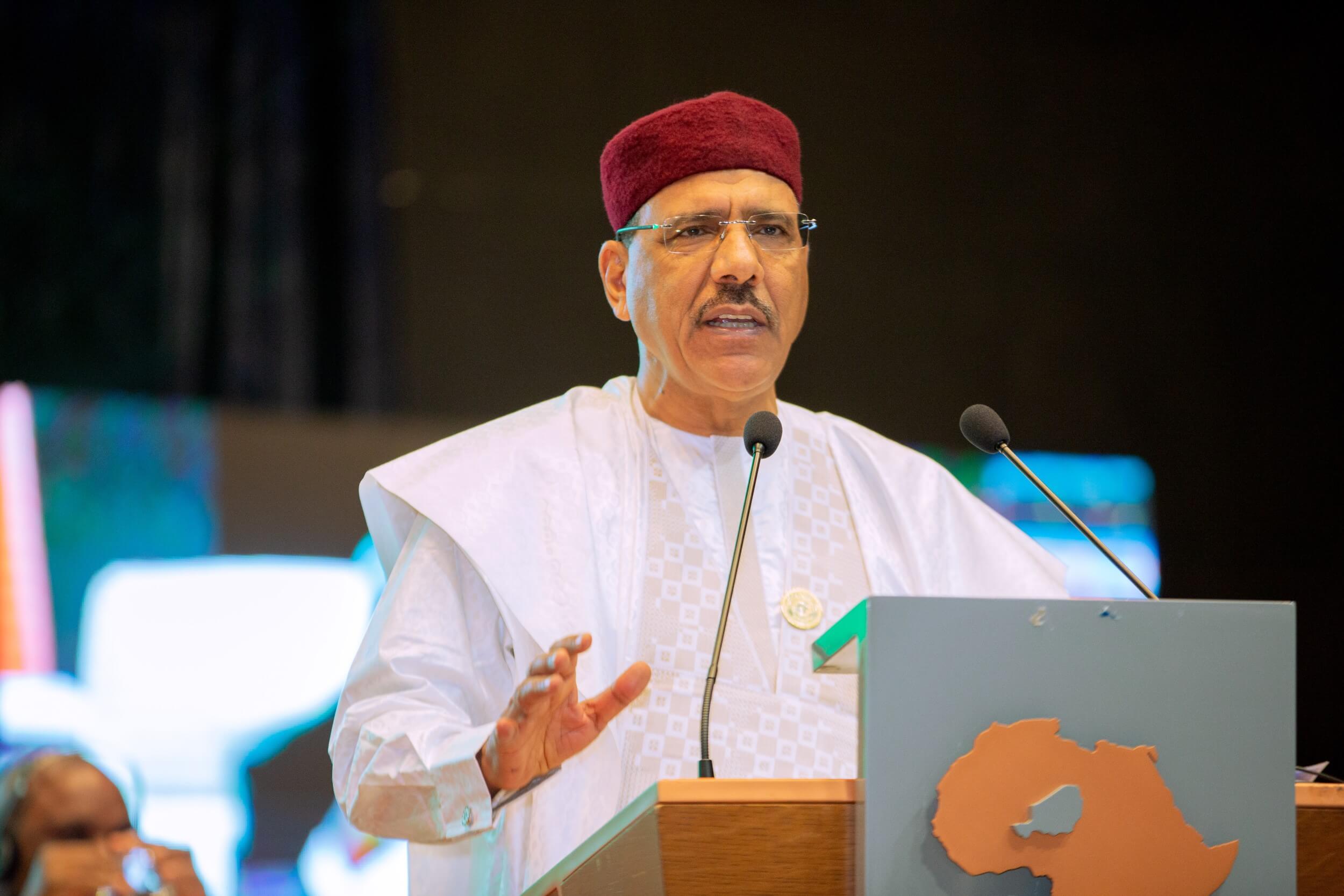Go further with Niger Republic
On January 8, 2024, cheering news emanated from Niger Republic with the release of the wife and 22-year-old son of Niger’s deposed elected President, Mohamed Bazoum, by the National Council for the Safeguard of the Homeland, the country’s ruling military junta. Salem Bazoum immediately left for Togo, a result of mediation efforts by West African […]

On January 8, 2024, cheering news emanated from Niger Republic with the release of the wife and 22-year-old son of Niger’s deposed elected President, Mohamed Bazoum, by the National Council for the Safeguard of the Homeland, the country’s ruling military junta. Salem Bazoum immediately left for Togo, a result of mediation efforts by West African regional leaders, following a softening of stance on a possible forceful intervention.
President Bazoum, his wife and son, had been detained at the presidential palace since July 26, 2023, following a military coup—one of eight coups in Africa since 2020—led by General Abdourahamane Tchiani, former head of the Presidential Guards.
Initially, the unlawful imprisonment of President Bazoum and his family was aimed at pressuring him to resign. But with his refusal, the junta began prosecuting him for ‘high treason’ and ‘undermining state security,’ offences which may carry the death penalty. In October, the military junta had alleged that the ousted president and his family, his two cooks and two security officials made a failed attempt to escape.
ECOWAS and Nigeria had responded with the suspension of Niger and sanctions, which have contributed to a sharp rise in food prices and a shortage of basic items. The diplomatic and economic pressures include Nigeria’s closure of the border with its northern neighbour, a regrettable development between the two long-term brotherly countries. The sanctions were aimed at pressuring Niger until there is progress and a clear pathway for return to civilian rule.
Bauchi gov knocks hisbah over spike in immorality
NIGERIA DAILY: Why Bauchi Sugarcane Sellers Move With Brooms
Nigeria’s Minister of Foreign Affairs, Ambassador Yusuf Tuggar, has commended the release of Bazoum’s wife and son. Tuggar, who is also ECOWAS Chairperson of the Mediation and Security Council, said it is a logical step in bringing normalcy back to the country and the region in general.
Generally, the release is good news in the efforts to use diplomatic channels to resolve the impasse in Niger Republic. It is also a triumph of regional mediation efforts as Togo’s Foreign Minister Robert Dussey came to Niger to escort Mr Bazoum Jnr out of the country. The junta admitted that Togo and Sierra Leone had been involved in mediation efforts to secure the release of the ousted president’s son.
Daily Trust welcomes the release of Bazoum’s wife and son as a cautious signal of rapprochement after long period of stalemate and confrontational rhetoric between Nigeria-led ECOWAS on the one hand, and the military regime in Niger Republic on the other. This latest development in an otherwise sad and difficult situation is a testimony that given the chance, diplomacy can work to resolve the initial impasse between the two parties.
Niger Republic is a long-standing ally of Nigeria, and until last year a strong member of the ECOWAS, with whom we share close affinities in many different but complementary areas. It is not a country with which we should be talking sanctions or war, because the repercussions of either will inevitably affect Nigeria as much as Niger, particularly in the many border communities we share.
Still, Nigeria and ECOWAS cannot, and must not be seen to be endorsing the steady roll-back of democracy in the subregion and the continent, however fashionable it may seem. This tricky situation, for Nigeria/ECOWAS and for Niger Republic, has been compounded by the rumoured influences of external powers on either side of the divide.
Therefore, we urge both parties to stay on track and build on these recent gains of diplomatic efforts to bring Niger Republic back into the fold of Africa’s democratic nations and to restore normal relations between Niger Republic and Nigeria/ECOWAS.
The Nigerien military government should go further by releasing Bazoum without any conditions, while also initiating a credible and acceptable programme for transition to constitutional rule. Niger Republic must also ditch its planned membership of the Sahel Alliance with Mali and Burkina Faso, which would only take it further away from Nigeria, its hitherto closest neighbour. This would also be in the interest of peace and stability in Niger as well as the entire region.
For their part, Nigeria and ECOWAS should also recognize that a return to the status quo before the July coup in Niger is probably infeasible at this point. Thus, the bloc should try to meet Niger’s diplomatic efforts as suggested above halfway, by easing sanctions and developing a credible path that will see Niger accepted back into ECOWAS. If successful, similar diplomatic efforts should be used to bring back Mali and Burkina Faso not only into the fold of democratic nations but also back into ECOWAS.
On the whole, the current development is a testament that African countries are best able to solve their own problems if they reject external influences, wherever in the world they may come from.
